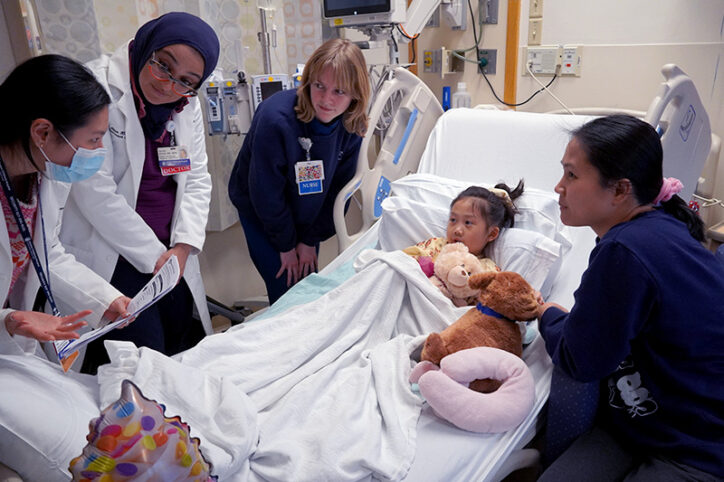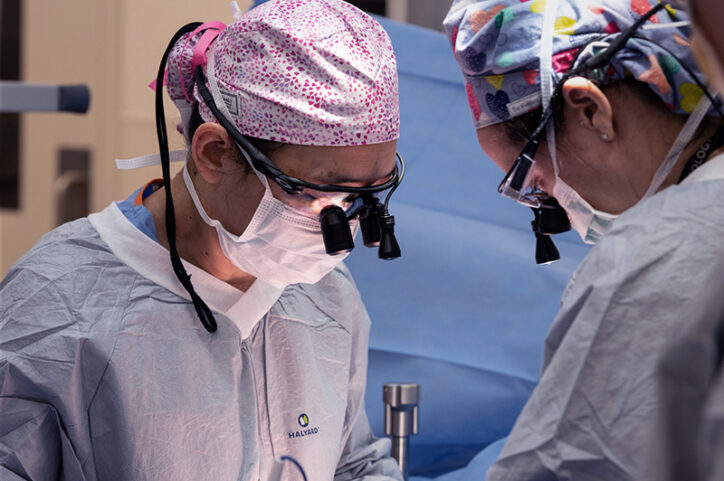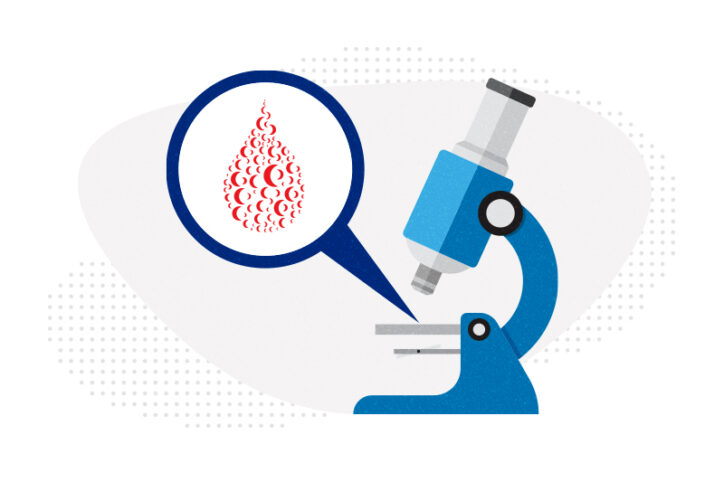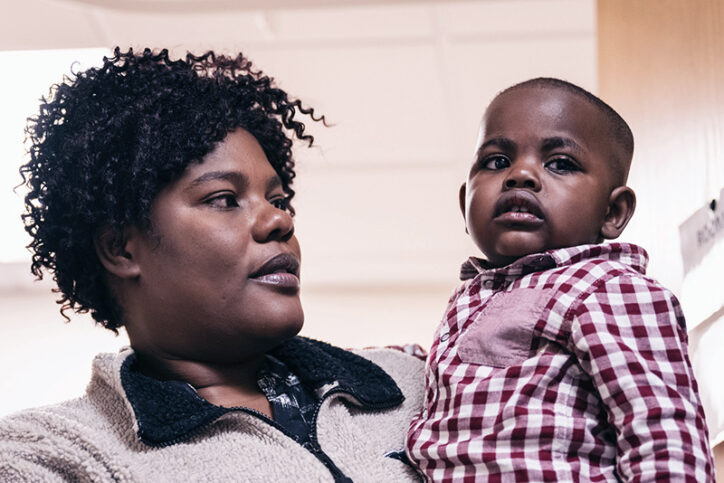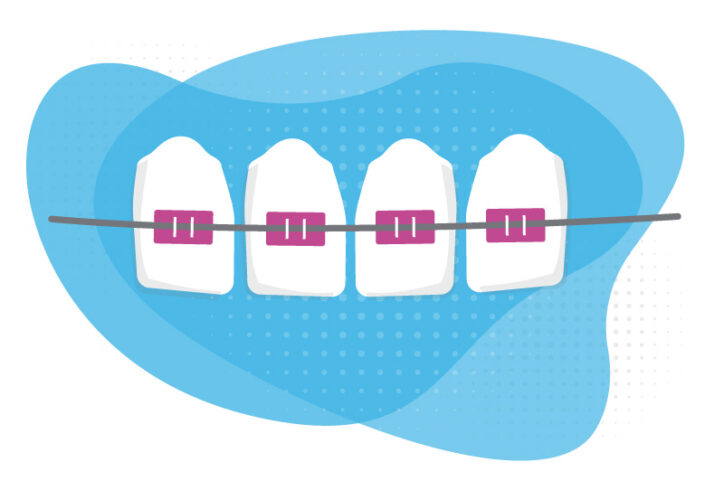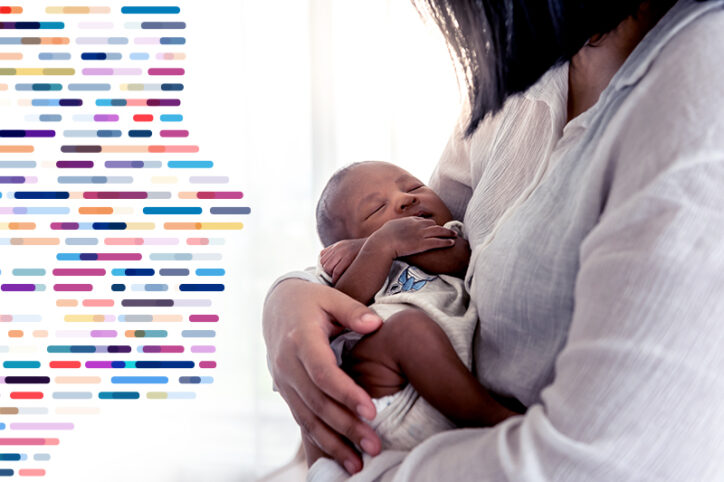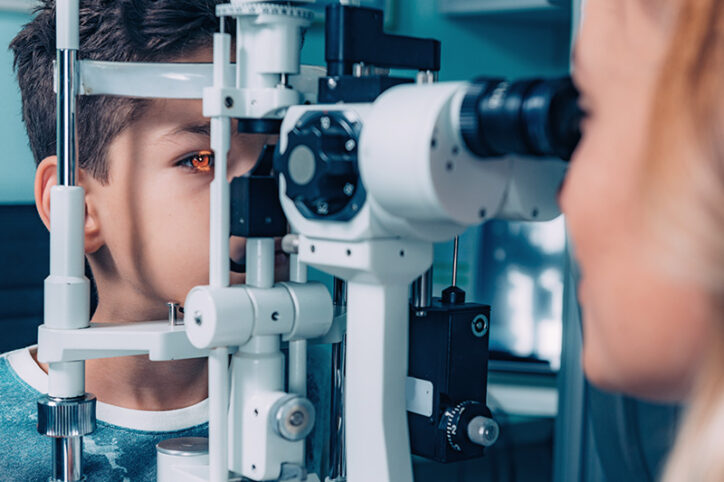Revisiting race and ethnicity in clinical guidelines
Health care institutions often rely on clinical pathways in assessing patients and making decisions about their care. Some of these care algorithms incorporate race, ethnicity, or ancestry as factors in decision making. But is this helpful or harmful? And is there solid evidence to justify treating people of different racial or ethnic backgrounds differently? Robert ... Read More about Revisiting race and ethnicity in clinical guidelines
Helping clinicians embrace family-centered rounds
If you’ve ever been hospitalized, you may have experienced this: groups of doctors coming in and talking about you like you’re not there or addressing you in a perfunctory manner, using medical jargon you don’t understand. Peggy Markle was taken aback when her son was hospitalized for a not-yet-defined condition in Washington and his care ... Read More about Helping clinicians embrace family-centered rounds
Infantile spasms: Speeding referrals for all infants
Infantile epileptic spasms syndrome (IESS), often called infantile spasms, is the most common form of epilepsy seen during infancy. Prompt diagnosis and referral to a neurologist are essential. Infantile spasms can present subtly, and research indicates that diagnosis is often delayed. Additionally, infants are especially likely to experience delays in referral to a neurologist if ... Read More about Infantile spasms: Speeding referrals for all infants
Surgery beats sclerotherapy for rectal prolapse in children ages 5 and older
Rectal prolapse — the protrusion of the lining of a child’s rectum through the anal sphincter — can occur for many reasons. In the pediatric population, it most commonly occurs in children under 4 years old but can affect older children as well. Children with colorectal and pelvic malformations tend to be at increased risk ... Read More about Surgery beats sclerotherapy for rectal prolapse in children ages 5 and older
Sickle cell gene therapy and boosting fetal hemoglobin: A 75-year history
Ed. Note: This post updates an earlier post from 2018. In a landmark decision today, the Food and Drug Administration (FDA) approved two gene therapies for sickle cell disease. One of them, Casgevy, has deep scientific roots at Boston Children’s Hospital — and is also the first therapy using CRISPR gene editing to gain FDA ... Read More about Sickle cell gene therapy and boosting fetal hemoglobin: A 75-year history
An off-the-shelf tamponade kit provides surgeons with ‘the luxury of time’ during a life-threatening emergency
It was a late Friday afternoon in April when the call came: A young boy was being transferred to Boston Children’s emergency department after swallowing a button battery. Although his mother had previously taken him to another local hospital when she noticed he wasn’t eating or drinking much, the battery ingestion had been missed until ... Read More about An off-the-shelf tamponade kit provides surgeons with ‘the luxury of time’ during a life-threatening emergency
Broken signals: Things you may not know about nerve injury
When Dr. Andrea Bauer talks about nerve injuries, she talks about phone cords. A damaged phone cord transmits staticky or broken sounds, or no sound at all. Similarly, peripheral nerve injuries (injuries that affect the arms, hands, legs, and feet) disrupt signals to and from the brain, causing numbness, loss of sensation, and lost function. ... Read More about Broken signals: Things you may not know about nerve injury
What your family should know about orthodontic care
By now, your family might know what to expect at a dentist’s office. It’s a familiar routine that includes an examination, a cleaning, and (just maybe) treatment for a cavity. An orthodontic appointment is much like a trip to the dentist, according to Dr. Megan McDougall, a Boston Children’s orthodontist. If your child’s first orthodontist appointment is ... Read More about What your family should know about orthodontic care
Bringing equity to genomic sequencing in newborns: BabySeq 2.0
Today, nearly 900 disorders caused by a single gene are known to be treatable. Yet the recommended “heel stick” testing for newborns only covers about 60 inherited, treatable disorders, and many individual states screen for fewer. What if newborns could instead have their entire genome sequenced at birth, with the results shared and acted on ... Read More about Bringing equity to genomic sequencing in newborns: BabySeq 2.0
Here’s how genetic vision testing can help your family
At least 600 of the roughly 20,000 genes in the human body are needed for normal eyesight. Changes in those genes can lead to many eye conditions, including glaucoma, cataracts, and inherited retinal disorders. If your child has an inherited retinal disorder, they might benefit from genetic testing. It can help determine a diagnosis and how their ... Read More about Here’s how genetic vision testing can help your family



